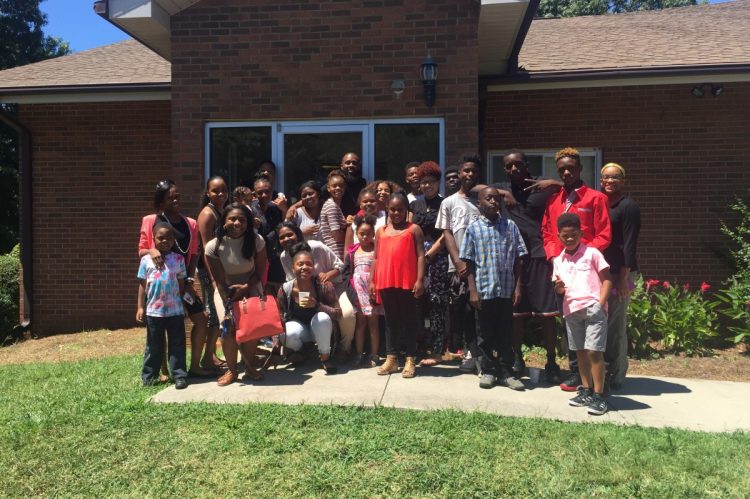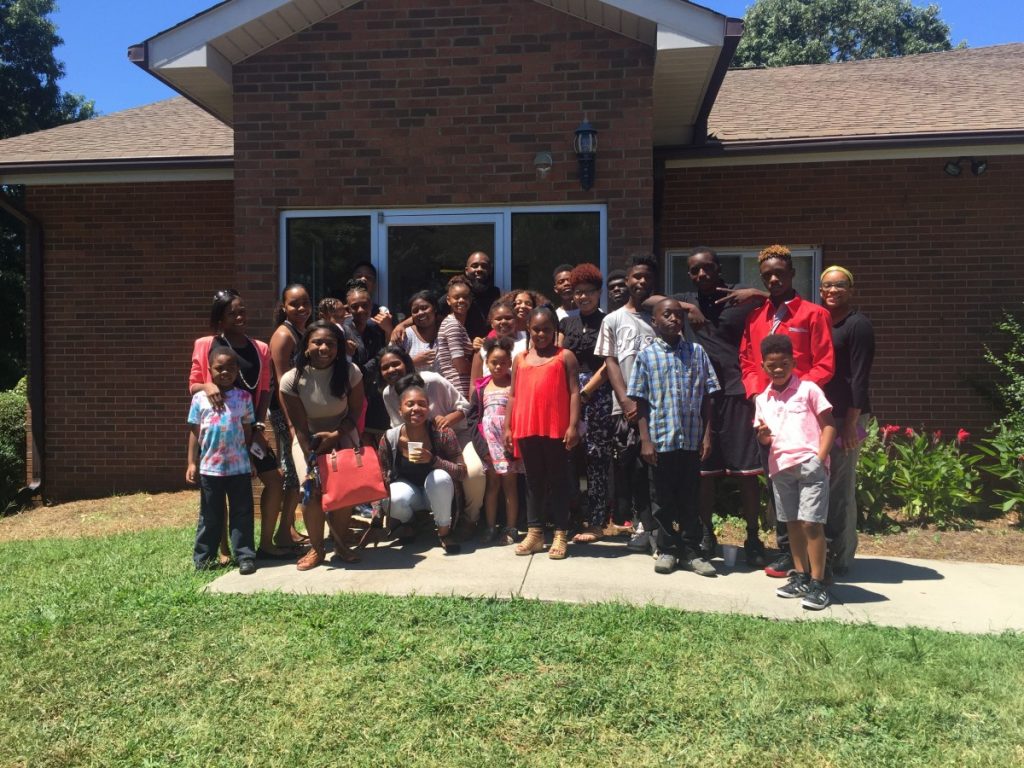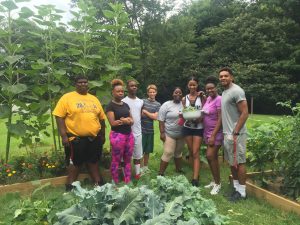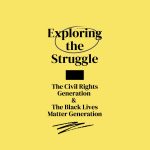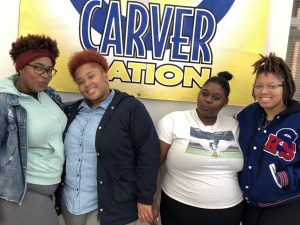Can you imagine the death of the Black Church? An institution that derives from the suffering, pain, and oppression of black individuals, the foundational spiritual organization for the empowerment of the Black community, seamlessly fading into the darkness of its past. The hope and dreams of our ancestors become lost in the competition with secular opportunities that are now afforded to our community.
Reverend Dr. Eddie Glaude shares his thoughts on this topic in his HuffPost article, “Instead, different areas of black life have become more distinct and specialized — flourishing outside of the bounds and gaze of black churches. I am not suggesting that black communities have become wholly secular; just that black religious institutions and beliefs stand alongside a number of other vibrant non-religious institutions and beliefs.”[1]
Death is the inevitable destiny of the Black Church if it fails to marry itself to the Black Lives Matter Generation. In doing so, the Black Church will successfully transfer its beliefs, cultures, and traditions to generations to come.
The survival of the Black Church is dependent upon its relationship with the Black Lives Matter Generation. The Black Lives Matter (BLM) Generation, more notably known as Generation Z, is the generation of youth and young adults born in 1997-2012, who have disconnected themselves from the Christian institution, faith traditions, and worship experiences that constitute the Black Church.
To accomplish such a task, the Black Church must display its importance to the Black community and build the trust of the Black Lives Matter Generation. This requires intentional conversations that reveal the needs of the Black community. Additionally, the church must accept responsibility for some of the challenges facing its community.
Church and Community Context
In 2016, I was given the opportunity to serve as the youth and young adult coordinator at Grace Presbyterian Church. Grace is a historic 114-year-old church, currently located in East Winston-Salem, North Carolina. This particular community has been labeled as one of the largest food deserts on the east coast. According to Nutrition Digest, food deserts are “parts of the country vapid of fresh fruits, vegetables, and other healthful whole foods, usually found in impoverished areas.”[2]
While youth lack resources and access to sustainable healthy food options, emotional and educational community support, and positive activities outside of extracurriculars at school, Grace has experienced a grave decline in its youth population/department. The need for the church to partner with its community is immensely evident.
Grace’s current membership is approximately 90% over the age of 50, primarily individuals who have been raised in church from birth. Healing this broken relationship, between church and community, won’t be easy being that the BLM Generation is comprised of many unchurched youth, who are inexperienced with Black Church culture.
Mentoring the Black Lives Matter Generation
Reverend Marshall, pastor of Grace from 2011-2019, gathered community partners: United Way, Big Brother Big Sister, Winston-Salem Forsyth County School System, and Winston-Salem State University (WSSU), along with Grace to offer a positive support system for youth in the community, create a safe haven from the stresses of everyday life, and allow the church to build community relationships. The development of the J.R.A.M.S. (Jackets and Rams Achieving Maximum Success) program created a mentorship opportunity for college, high school, and middle school students while receiving guidance and support from the church and its parishioners.
Simply explained, college students from WSSU were invited to join and partner with the church under watch-care membership, serving in our weekend feeding program and becoming mentors in the J.R.A.M.S. program. During the summer, the J.R.A.M.S. mentor program grew as large as 65 students from the East Winston area. In total, the program served well over 300 students in two years.
The summer program was intentionally housed at Grace, as an opportunity to familiarize students with the church, allow families and community partners to perceive the church as a potential “third place” – “a gathering place for people separate from home (the first place) and work/school (the second place),”[3] and methodically introduce traditional church practices. The initial focus was to provide community youth with a safe learning environment that offers enrichment activities in civic engagement and social action, intergenerational leadership development, and nutritional and mental health.
Grace began to welcome the J.R.A.M.S. mentors and mentees to participate in the church as contributors in the Sunday morning worship experience. Although spiritual development was not a primary focus in previous iterations of the program, as a religious institution it was equally important to have a spiritual impact as well. This study intended to implement a spiritual component within the J.R.A.M.S. program that offered students an opportunity to journey through spiritual formation within the Black Church context.
Project
The most amazing aspect of building trust and rapport with others is the endless possibilities that can emerge from the exchange. This study proved that amid a pandemic, 12 youth were willing to engage in a six-week intensive spiritual growth and development program. Each week involved a virtual Sunday service, a Thankful Tuesday video, and a Friday ‘Family Meeting’ check-in session. Every meeting also ended with a survey or questionnaire.
Week One: Who is God?
For an unchurched generation, defining God and His responsibilities to His people was our number one priority. Students wondered if God is all-powerful and omnipresent, “Why does He allow us to endure such hardships?” I responded, “In faith, we believe that God allows us to endure hardship to mature us and develop our trust in Him. We are an imperfect people, serving a perfect God that won’t let us fail, as long as we’re with Him.”
Week Two: Who am I?
Having an understanding of the Creator helps us understand who He created us to be. 50% of our students admitted that they lack self-confidence and struggle with self-love. With this understanding, we did an activity where students were instructed to find five affirming scriptures and explain why they chose them. This assignment empowered our students to understand their value, which provides a sense of belonging to the greater community. We encouraged our youth to RESET how they felt about themselves and who they were created to be.
Week Three: Who is my family?
The J.R.A.M.S. program is more than mentoring, it’s a creation of a family. Our working definition of family is an “intentional community divinely connected for the fulfillment of God’s will and empowerment of His people.”
Week Four: What is my purpose?
Informing our students that God created His people to live in harmony and unity, as one large family, encouraged them to discover their God-given purpose in the earth. “Purpose” was defined as “a call that gives God glory and impacts the community.” I was encouraged by the 58% of the youth that has a desire to impact youth in future generations.
Week Five: How not to give up!
As if their current circumstances weren’t enough, our youth were struggling to remain hopeful and motivated throughout the pandemic. Being encouraged by Galatians 6:9, students were empowered that on the other side of their suffering is opportunity and victory.
Week Six: How to give back…
In partnership with The Civil Rights Generation (1928-1945) of the church, church members and community youth gathered for conversation as we examined and enlightened one another on the struggles of the two generations. Continuing the familial bond, both parishioners and youth were inspired by simply sharing their stories.
Becoming a Mentoring Institution
As mentoring becomes a normative practice within Grace’s culture, community youth will have the opportunity to spiritually mature, create relationships with those in the community, and heal the broken relationship between the Black Church and the Black Lives Matter Generation.
COVID-19 has caused the Black Church and the Black community to recognize that life was never intended to be lived alone. Our potential next steps are to welcome another group of students into the six-week spiritual formation and begin offering mentors and mentees the opportunity to get baptized.
Having the BLM generation in the Black Church continues the legacy and brings hope to the furtherance of the Black Church tradition. Furthermore, the church is transformed by the perspective of a generation that keeps the Black Church relevant in the Black community.
[1] Eddie Glaude, “The Black Church Is Dead,” April 26, 2010, https://www.huffingtonpost.com/eddie-glaude-jr-phd/the-black-church-is-dead_b_473815.html (accessed March 2017).
[2] Mari Gallagher, “USDA Defines Food Deserts,” 2011, http://americannutritionassociation.org/newsletter/usda-defines-food-deserts (accessed December 2017).
[3] Thom S. Rainer & Sam S. Rainer, Essential Church?: Reclaiming a Generation of Dropouts (Unabridged ed.) (B&H Publishing Group, 2008), 61.
